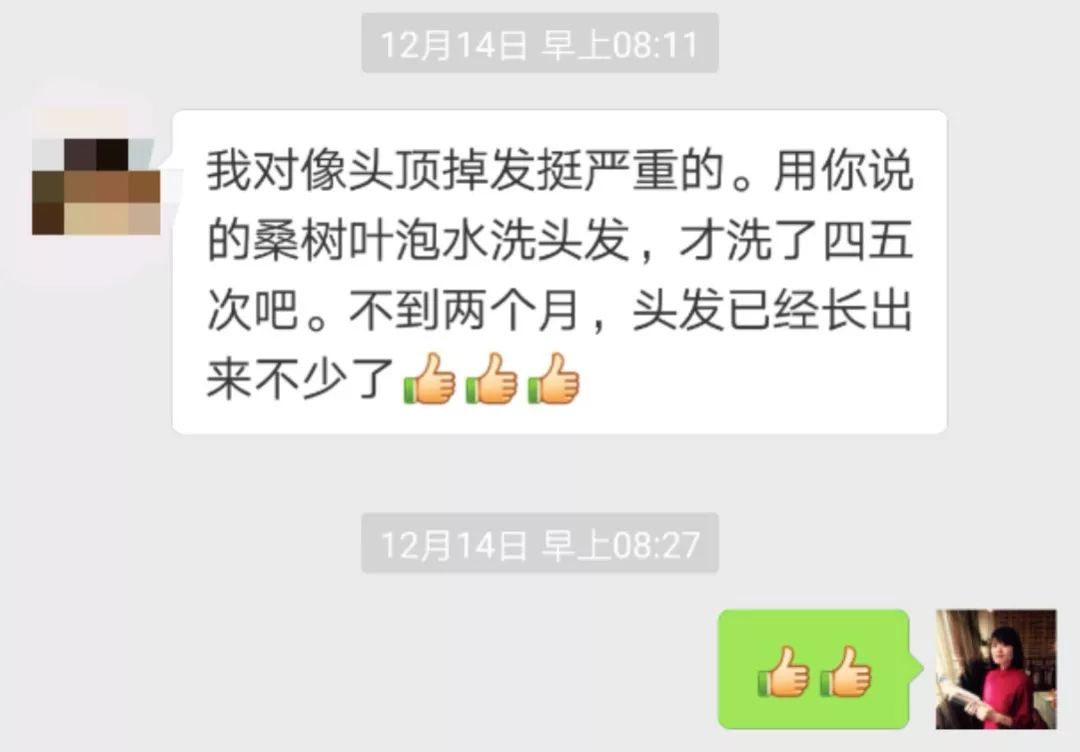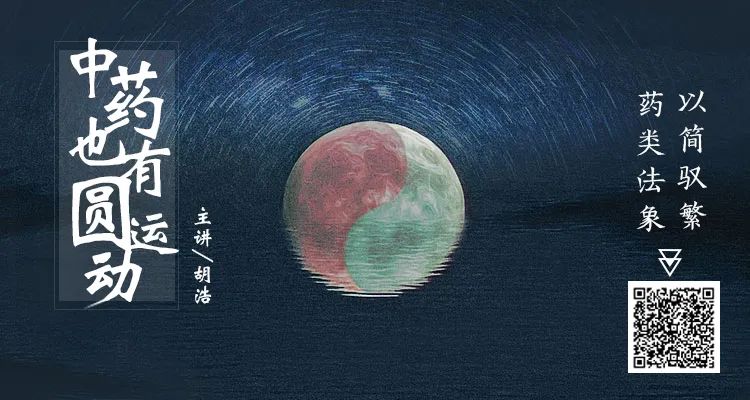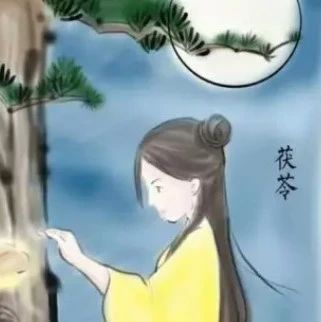
TCM Book Club Issue 2744
Daily updates to accompany the growth of TCM practitioners
I Introduction:
Fu Ling (Poria)
In your eyes
Am I so
Indispensable
I am ordinary
Yet essential
Do you know
Your peace of mind
Is actually due to my presence
—— Zi Jing Jiang
(Editor/Wang Chao)

Chinese Medicine also has Circular Motion — Fu Ling (Excerpt)
Speaker/Hu Hao
Linglan TCM, fellow practitioners, friends, hello. Today we will learn about a new herb: Fu Ling.
1. Medicinal Source
Fu Ling is known to come from the dried sclerotium of the fungus Poria cocos, which is a perennial medicinal fungus. What is this sclerotium? It is a dormant body formed by the aggregation of mycelium and nutrients, also known as a storage body, somewhat similar to a radish or potato.
To survive, this sclerotium must parasitize on pine roots. Some parts of the pine roots may be slightly decayed, and it grows the fungus using the pine roots as a nutrient base, with its fruiting body resembling a mushroom.
Fu Ling prefers a humid and warm growing environment, generally thriving at temperatures between 18-35°C, with the optimal temperature being 18°C. In autumn and winter, or below zero, it usually enters a dormant period, as it is sensitive to severe cold. Once spring arrives and it warms up, it begins to grow very quickly. Typically, it can be harvested after about 3 to 4 years of cultivation, but wild varieties can last over 10 years, with legends of Fu Ling lasting a hundred or even a thousand years.
Generally, soil that has been cultivated for Fu Ling cannot be replanted for three to five years, as the nutrients will be depleted.
In terms of medicinal use, we have Fu Ling Pi (Fu Ling skin), Chi Fu Ling (Red Poria), Bai Fu Ling (White Poria), and Fu Shen (Poria Spirit). Fu Ling Pi is the outer black-brown skin; after removing the outer black skin, we have Chi Fu Ling, which is slightly reddish and is generally believed to enter the blood level. Bai Fu Ling is our main medicinal part, usually considered to enter the Qi level. Fu Shen is the part that contains the pine root.
We generally choose Bai Fu Ling, which should have no strong odor, a slightly sweet and mild taste, and a chewy texture that sticks to the teeth, indicating high quality. Visually, it should be solid and porcelain-like, which is considered top-grade.
2. Main Effects
Strengthening the Spleen and Draining Dampness
As we know, over 70% of the human body is water, but much of this water can be waste that the body has not fully utilized, leading to phlegm, edema, and various pathological products. Fu Ling can help expel this water through the pores or urination. In the process of expelling, it does not harm Yin and has a certain nourishing effect, being able to both drain and tonify, while also indirectly nourishing other organs.
Classic representative formulas include Si Jun Zi Tang (Four Gentlemen Decoction) and Shen Ling Bai Zhu San (Ginseng and Poria Powder), which treat Spleen Qi deficiency with dampness or Spleen deficiency with diarrhea. It can be combined with formulas for treating the stomach, such as Er Chen Tang (Two Aged Decoction) or Ban Xia Fu Ling Tang (Pinellia and Poria Decoction), which address phlegm and dampness in the stomach. There is also the classic formula for treating plum pit Qi, Ban Xia Hou Po Tang (Pinellia and Magnolia Bark Decoction), which includes Fu Ling, Su Ye (Perilla Leaf), and Ginger. For gynecological issues, we have Gui Zhi Fu Ling Wan (Cinnamon Twig and Poria Pill).
For phlegm and fluids that condense into phlegm and flow into the meridians, we have Zhi Mi Fu Ling Wan (Finger-Pointing Poria Pill). These are some common uses of Fu Ling.
Treating Heart Disorders
It is known that the heart and small intestine are interrelated, and many practitioners have discussed that Fu Ling can indeed nourish the heart and calm the spirit. It is used to treat heart disorders such as forgetfulness, insomnia, urinary difficulties, turbid urination, or frequent urination. In men, it may manifest as nocturnal emissions, while children may experience bedwetting, which is essentially a shared condition of the heart and small intestine.
Another common deficiency syndrome is heart deficiency, which can lead to sweating in the heart area, often referred to as “heart sweat.” This occurs when one thinks too much and sweats, but does not sweat when not thinking. This is a deficiency syndrome. Fu Ling can be used in these situations. In the Compendium of Materia Medica, it is recorded that using Ai Ye (Mugwort) with Fu Ling, adjusting Fu Ling powder, and consuming it daily for a period can lead to improvement.
3. Typical Medical Case
Finally, let me introduce a medical case. A patient frequently experienced hair loss and had tried many hair growth medications without success. Later, he consulted a doctor who diagnosed that his hair loss was due to excessive consumption of cold foods. The doctor prescribed one kilogram of Fu Ling, instructing him to use 30 to 50 grams daily, boiled in water as tea.
After finishing the one kilogram of Fu Ling, he found that his hair gradually grew back. What does this indicate? Fu Ling can help drain the water from the stomach and intestines, and once the water is eliminated, the heart fire decreases, allowing hair to grow back. Many patients experience hair loss due to excessive heat, but why does the heat become excessive? It is because the dampness in the middle jiao obstructs the interaction between the heart and kidneys, which can also lead to hair loss.
Additionally, the editor notes: Teacher Hu believes that Chinese medicine should be learned in this way: in the section on the circular motion of frost mulberry leaves (click the link to read the article), methods for washing hair with frost mulberry leaves to treat hair loss were introduced. This year, during the Frost Descent festival, I encouraged friends in my circle to pick frost mulberry leaves. A few days ago, I received feedback:

Is Teacher Hu like a little ding-dong?  So many little tips?
So many little tips? Highly recommended to all friends! Truly!
Highly recommended to all friends! Truly!
Recommended Reading:
How to Learn Chinese Medicine Most Effectively?
Chinese Medicine Should Be Learned This Way: The Circular Motion of Frost Mulberry Leaves
|
I Copyright Statement
I Submission Email [email protected] |
About the Teacher: Hu Hao, Chief Physician of TCM Internal Medicine, Master’s Degree Supervisor. Currently serves as the Director of the TCM Prescription and Medicine Teaching and Research Office at Xinjiang Medical University, with over twenty years of teaching and clinical experience. Academically advocates for reducing sectarian disputes, emphasizing efficacy in clinical practice. In practice, he stresses “using the ancient for the present, and the foreign for the Chinese.”
On October 19, after the launch of Teacher Hu’s online course “Chinese Medicine also has Circular Motion” at Linglan for 2 months, we randomly sent out a survey among the purchasers, asking: Are you satisfied with the course content and structure? A total of 203 submissions ( 99 very satisfied, 101 satisfied, 3 dissatisfied )
I have selected a few student feedback for your reference (as an editor with years of experience in content, I strongly recommend it to everyone):
-
So worth it! If I had such a good teacher back then, my Chinese medicine wouldn’t have become the worst subject.
-
Gained a new understanding of Chinese medicine, and the summaries after class are also great.
-
This is the best Chinese medicine class I’ve heard in years! Thank you, teacher! I feel that the teacher has a profound theoretical foundation and rich clinical experience!
-
Very good course, learning offline with a teacher is very troublesome, this course allows for flexible learning time, learning online with a famous teacher.
-
Must praise, Teacher Hu is really amazing, has helped me a lot, thanks to the TCM Book Club and Teacher Hu!
-
Explanations are clear and traditional, after listening I feel enlightened and integrated, hope for more strength, the more the better!
-
Each Chinese medicine lecture is indeed very vivid and easy to understand, really excellent!
-
I am a beginner in Chinese medicine, simplicity and clarity are very important to me, I hope when discussing Chinese medicine, it can correspond with meridians and acupoints.
-
I am very satisfied with Teacher Hu’s lectures: detailed content, wonderful cases!
Click here to get started↓


